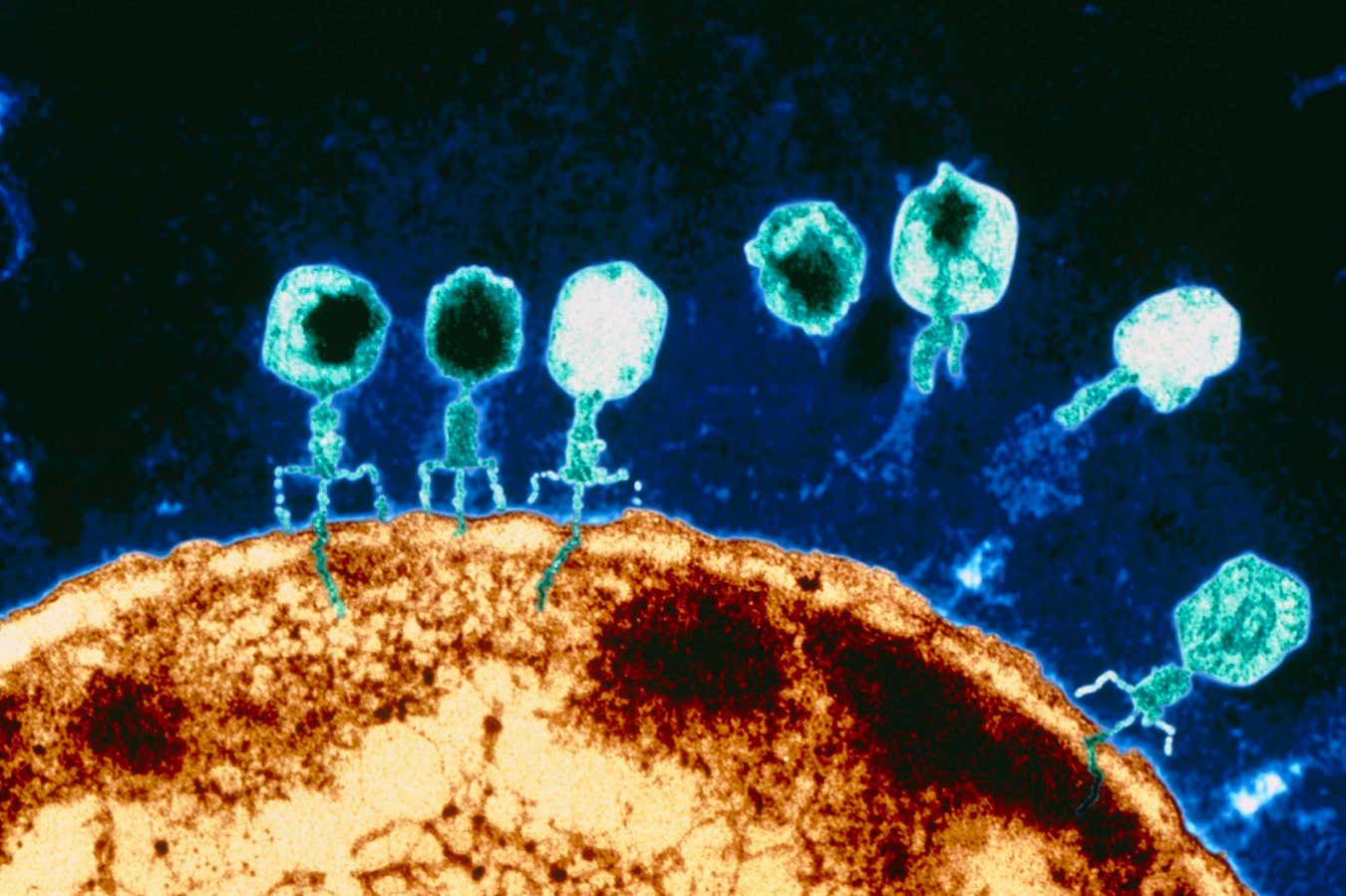Our cells may benefit from consuming bacteria-killing viruses known as phages. Understanding the role of these phages in our bodies is crucial, especially considering their increasing use as an alternative to antibiotics in regions facing antibiotic resistance.
Scientists have observed that cells trap phages as they take in surrounding liquids, but the full impact of this process on cells remains unclear. To investigate further, researchers at Monash University in Australia, led by Jeremy Barr, conducted laboratory experiments exposing human and mammalian cells to the well-studied T4 phage. By staining the phage’s DNA, they were able to track when the cells engulfed the virus.
The team aimed to determine whether the entry of phages into cells triggered any inflammation response. Results showed that the cells did not exhibit any immune responses after taking up these bacteria-killing viruses. This suggests that phages have the potential to treat bacterial infections that cause inflammation without worsening symptoms, according to Sabrina Green at KU Leuven in Belgium.
In a separate aspect of the study, the researchers examined how engulfing a phage might influence cellular processes. They analyzed 2000 proteins that regulate cellular functions in lung and kidney cells and focused on two signaling pathways consistently affected by the phages. One pathway was found to enhance cell growth, survival, and proliferation, while the other momentarily delays the cell cycle just before DNA replication. Barr suggests that during this stall, cells may extract resources from the virus to support their own growth.
Mikael Skurnik at the University of Helsinki in Finland suggests that phage-mammalian cell interactions likely occur regularly in our bodies without any major consequences. This further strengthens the belief that phage therapies are safe.
While cells engulfing phages may lead to a reduced number of phages available to attack bacteria during therapeutic use, Green argues that this may not be a problem since phages can propagate and replenish their numbers as they target bacteria. Green suggests future studies should investigate various types of phages instead of solely focusing on T4.
Insights:
- Phages, bacteria-killing viruses, are being considered as an alternative to antibiotics as they show promise without causing immune responses or inflammation.
- Phages can influence cellular functions, with some pathways promoting cell growth and others temporarily stalling the cell cycle during DNA replication.
- Interactions between phages and mammalian cells likely occur naturally without causing any significant harm, reinforcing the safety of phage therapies.
- While cells engulfing phages may reduce the number of available phages for therapeutic use, phages have the ability to propagate and replenish their numbers.








